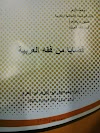The wildfires that ravaged California are undoubtedly a disaster that has left a deep sorrow for the residents there. The significant material losses, severe environmental damage, and irreplaceable loss of lives have made this tragedy one of the most heartbreaking events.
However, it is interesting to note that the public's response to this disaster has been very diverse. One prominent perspective that has emerged is the crisis of humanity and empathy reflected in the attitudes of some individuals. For example, a few people have shown a sense of joy by calling this calamity a "punishment" for America.
This viewpoint stems from the perception that the superpower nation is considered to support the occupation of Palestine. Due to the oppression that has occurred in Palestine, some people link the wildfire disaster to a form of 'revenge' from Allah for their actions.
In reality, as humans, we cannot know for certain the true will of Allah. What we may perceive could merely be our personal interpretations of Islamic texts, both the Qur'an and hadith, which are often influenced by emotions.
This article does not intend to support the occupation of Palestine in any way. Rather, its primary goal is to remind us that we do not have the right to determine whether a particular event is a form of divine punishment or not. That determination is solely within Allah's prerogative, under His authority, and only He knows it absolutely.
Indeed, if we refer to the classical works of scholars on the theme "Is it permissible to feel joy over the calamity that befalls the enemies of Islam?", we will find opinions that allow it in certain contexts. For instance, in Surah Al-Ahzab, verse 9:
يٰٓاَيُّهَا الَّذِيْنَ اٰمَنُوا اذْكُرُوْا نِعْمَةَ اللّٰهِ عَلَيْكُمْ اِذْ جَاۤءَتْكُمْ جُنُوْدٌ فَاَرْسَلْنَا عَلَيْهِمْ رِيْحًا وَّجُنُوْدًا لَّمْ تَرَوْهَاۗ وَكَانَ اللّٰهُ بِمَا تَعْمَلُوْنَ بَصِيْرًاۚ
Translation: "O you who have believed, remember the favor of Allah upon you when armies came against you, and We sent upon them a wind and armies you did not see. And ever is Allah, of what you do, Seeing." (QS. Al-Ahzab: 9)
At-Thabari explains this verse, saying, "The favor of Allah upon your group occurred when the Muslims and the Prophet (SAW) were besieged on the days of the Battle of Khandaq."
The term "army" refers to the allies from various groups: the Quraysh, Ghatafan, and the Jews of Banu Nadir.
"Then We sent a wind…" refers to the eastern wind (shaba). (Jami'ul Bayan, Beirut, Muassasatur Risalah: 2000, Vol. XX, p. 214).
Based on this verse and At-Thabari's explanation, it is not appropriate to link the joy over the calamity that befell a community or group considered as 'enemies of Islam' in the present day.
The verse has a specific context, namely the Battle of Khandaq led directly by Prophet Muhammad (SAW). That battle was not a typical battle; it was based on divine revelation. Therefore, joy over the defeat of the enemy in the Battle of Khandaq is an expression of gratitude for the event decreed by revelation to the Prophet.
The situation today is clearly different. We do not have any basis to justify that a particular country or community is the 'enemy of Islam,' as was the case during the time of the Prophet (SAW). There is no revelation that ensures whether a calamity is a punishment or not, as was previously confirmed through a dialogue between Allah and His Messenger.
Another example is the hadith narrated by the companion Anas bin Malik (RA):
مَرُّوا بِجَنَازَةٍ، فَأَثْنَوْا عَلَيْهَا خَيْرًا، فَقَالَ النَّبِيُّ صَلَّى اللهُ عَلَيْهِ وَسَلَّمَ: «وَجَبَتْ» ثُمَّ مَرُّوا بِأُخْرَى فَأَثْنَوْا عَلَيْهَا شَرًّا، فَقَالَ: «وَجَبَتْ» فَقَالَ عُمَرُ بْنُ الخَطَّابِ رَضِيَ اللَّهُ عَنْهُ: مَا وَجَبَتْ؟ قَالَ: «هَذَا أَثْنَيْتُمْ عَلَيْهِ خَيْرًا، فَوَجَبَتْ لَهُ الجَنَّةُ، وَهَذَا أَثْنَيْتُمْ عَلَيْهِ شَرًّا، فَوَجَبَتْ لَهُ النَّارُ، أَنْتُمْ شُهَدَاءُ اللَّهِ فِي الأَرْضِ
Translation: "They passed by a funeral and spoke well of it. The Prophet (SAW) said, 'It is certain [that he will enter paradise].' Then they passed another funeral and spoke ill of it. The Prophet (SAW) said, 'It is certain [that he will enter Hell].' Umar ibn al-Khattab (RA) asked, 'What is certain, O Messenger of Allah?' The Prophet (SAW) replied, 'This person whom you spoke well of is certainly destined for Paradise, and this person whom you spoke ill of is certainly destined for Hell. You are the witnesses of Allah on Earth.'" (Narrated by Al-Bukhari).
In the above hadith, the companions testified about the deceased, and the Prophet (SAW) confirmed it. There was confirmation based on revelation in the companions' assessments, with the Prophet present among them.
Based on this, Ad-Dihlawi emphasizes that while Muslims are 'witnesses of Allah' on Earth, they should not hastily pass judgment. He stated:
"However, it must be remembered that the Prophet's saying, 'You are witnesses of Allah,' indicates that if the believers testify something good or bad about someone, it is certainly established. However, this refers to sincere and pious believers, without personal motives, especially if they are agreed upon for their goodness." (Lam'atut Tanqih, Damascus, Darun Nawadir: 2014, Vol. IV, p. 140).
Furthermore, in classical literature, joy over the death or calamity faced by an ideological opponent has occurred. However, it must be emphasized that rejoicing over the misfortune of an ideological opponent, based purely on ideological differences, is inhumane and lacks empathy.
However, if the individual in question is known for their extreme cruelty and oppression, then joy may emerge because it is seen as a liberation from an oppressive leader.
For example, Al-Khatib Al-Baghdadi narrated about Al-Hasan bin Bazdan At-Turki, a prominent Baghdad leader known for his severe and fanatical opposition to the Sunnis. His death was met with joy from the Sunni community, as they viewed it as a relief from his tyranny.
"After his death, the people of Ahlus Sunnah rejoiced greatly and openly expressed their gratitude to Allah. There was no one among them except praising Allah." (Al-Khatib al-Baghdadi, Tarikhul Baghdad, Beirut, Maktabah al-Ma'arif, p. 272).
If we look at the above phenomenon, sectarian hostility often stems from excessive ideological fanaticism. This conflict often leads to serious threats, even warfare, which harms the entire society.
In the past, sectarian identities were often used as a pretext for tensions, which were further exacerbated by the struggle for political power. However, in today's world, such attitudes are no longer relevant. The world has changed, and the challenges humanity faces are more complex, transcending ideological or religious boundaries.
Today, we are in an era that demands reconciliation, mutual respect, and cooperation for collective progress. Sectarian conflict based on ideological differences will only worsen conditions and hinder collective efforts to promote global prosperity and maintain world peace.
Instead, collaboration across ideologies based on universal human values can provide a strong foundation for creating a harmonious life. By stopping the cycle of mutual condemnation and hatred, we can direct our collective energy toward tackling global challenges such as poverty, climate change, and armed conflicts.
Moreover, Izzuddin bin Abdissalam gives a moderate view regarding human reactions to the misfortunes of their enemies. According to him, rejoicing over the misfortune of the enemy does not reflect noble character if it is based solely on hatred.
However, if that joy arises because one feels relieved from the threat or tyranny of the enemy, then that response is humane and understandable. This attitude emphasizes the importance of distinguishing between unjustified personal hatred and the relief that comes from achieving security and justice. He said:
"I say: If someone rejoices because the action was a sin against Allah, then their joy is truly bad. However, if they rejoice because they are relieved from the harm of the enemy, and people are freed from their oppression and cruelty, without rejoicing over the sin in their killing, then there is no harm in this joy, as the reason for their joy is different." (Bayan Ahwalin Nas yawmal Qiyamah, Beirut, Darul Kutub Al-‘Ilmiyah: 2003, p. 28).
Regarding the California fires, it is essential not to hastily judge that the event is a punishment from Allah, especially when the justification is based on differences in belief or religion.
Today is not a time for war or enmity in the name of religion, but a time to strengthen humanity and help one another. Do not let religious egos lead us to think we are the most righteous and that those who differ in opinion deserve divine punishment. Allah says:
فَلَا تُزَكُّوْٓا اَنْفُسَكُمْۗ هُوَ اَعْلَمُ بِمَنِ اتَّقٰى
Translation: "Do not claim yourselves to be pure. He is most knowing of who is righteous." (QS. An-Najm: 32).
Determining whether a calamity is a punishment or not is Allah's sole prerogative. As creatures, we do not have the capacity or authority to make such judgments. This aligns with the teachings of Sheikh Al-Baijuri, who stated that Allah has free will to do anything for His servants. He said:
تجوز الله تعالى عقلا إثابة العاصي وتعذيب المطيع...
Translation: "Allah is rationally able to reward the sinner and punish the obedient. In summary, Allah is not benefitted by obedience nor harmed by disobedience. Everything is His creation." (Tuhfatul Murid, Beirut, Darul Kutub Al-‘Ilmiyah: 2004, p. 121).
Lastly, if anyone feels joy or mocks the victims of the California wildfire because the U.S. government supports the occupation of Palestine, this attitude is also inappropriate. We do not know if the people who became victims of the fire, whether they lost homes or lives, were directly involved in the policies or actions of the occupation. The government's policies do not always reflect the character or will of its people.
Moreover, we know that the Prophet Muhammad (SAW) advised us not to ridicule someone who is facing a calamity, fearing that the calamity might befall the one who mocks. He said:
لا تُظْهِرِ الشَّمَاتَةَ لِأَخِيكَ فَيَرْحَمُهُ اللَّهُ وَيَبْتَلِيكَ
Translation: "Do not show joy at the misfortune of your brother, for Allah may have mercy on him and test you." (HR At-Tirmidhi).
Justifying their suffering or mocking the calamity they face only underscores the shallowness of empathy. As humans taught the values of goodness, it is wiser for us to respond to calamities with prayer and sympathy, not with prejudice or hatred. Wallahu a'lam.
Amien Nurhakim, Editor of NU Online and Lecturer at the Faculty of Ushuluddin, PTIQ University, Jakarta.









